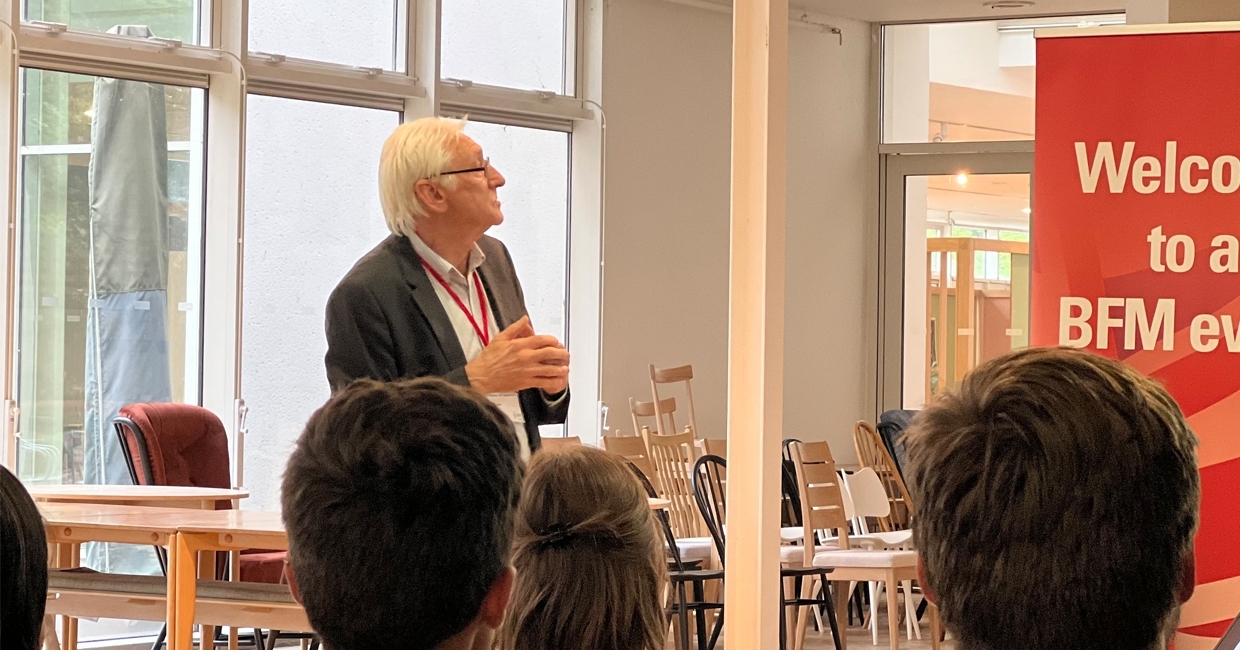An expert in skills development, regulation, quality assurance and inspection of the quality of learning, Derek Williams, quality director at Achieve + Partners, was the guest speaker at the first regional meeting hosted by the British Furniture Manufacturers (BFM), held at Ercol’s Princes Risborough HQ earlier this summer. Themed around ‘The Workforce of Tomorrow’, Derek shared his thoughts on apprenticeships and employer-led learning, including the new T-level qualification – here’s a summary of his presentation …
Among the essential tools for the workforce of tomorrow are the skills and knowledge gained through industry-tailored learning schemes such as apprenticeships, post-GCSE study programmes and T-Levels. Each of these provides opportunities for potential recruits to learn, gain real-world experience and become employment-ready.
Apprenticeships
Apprenticeships can add value to business. Programmes are set by employers and approved by the Institute for Apprenticeships and Technical Education (IATE), with a mix of 80% on-the-job work-based learning and 20% off-job learning.
The Government currently offers a £3000 incentive for hiring a new apprentice, while 86% of employers said apprenticeships helped them develop skills relevant to their business, 78% said apprenticeships helped them improve productivity, and 74% said apprenticeships helped them improve the quality of their product or service.
Apprenticeships are open to people aged older than 16, and can provide a route to employment for younger people, as well as opportunities to expand the knowledge and skills of more mature employees within the workplace.
Study programmes
Study programmes for 16-19-year-olds are courses based on knowledge and skills for a vocational area, set and delivered by FE colleges and training providers. Current programmes include learning based around specific areas such as furnituremaking and fitted furniture installation.
While these courses are full-time, with learners expected to attend college each week, each course must also include at least one or two weeks of relevant work experience each year.
Some of these students are work-ready upon completing a study programme, while others may be recruited to an apprenticeship scheme to further develop their knowledge and skills in a specific area.
T-levels
Technical Levels (or T-levels) are a new employer-led qualification equivalent to three A Levels, and designed to ensure young people are work-ready. Combining 80% classroom learning and a 20% work placement of nine weeks over two years within a relevant industry, T-levels consist of a core curriculum with opportunities to specialise within the subject, as well as English, maths, and any digital skills relevant to the course.
Getting in early with T-levels presents opportunities for employers. Businesses establishing relationships with training providers can get involved in influencing the design and delivery of the curriculum as well as consider opportunities to sponsor students, provide work placements and offer mentoring.
Relevant T-levels for BFM members will include Furniture Maker, Management and Administration, Digital, Engineering, Manufacturing, Processing and Control.
ROI
Getting involved in training options – whether you plan to offer an apprenticeship or offer work placement for study programmes and T-levels – requires an allocation of time, and often, budget. But these can offer significant returns on investment, depending on what a business plans to achieve.
As part of a strategic skills and retention policy, investment in apprenticeships and training can ensure retention of skilled employees, as well as upskilling existing staff and bringing people with specific skills into the industry.
Study programmes, apprenticeships and T-levels are all launchpads for people considering a career in Britain’s furniture-manufacturing sector, and as businesses look to secure the skills needed for growth, these routes to employability are essential tools for the businesses – and the workforce – of tomorrow.
Discover more perspectives on industry training in August's Furniture News.









